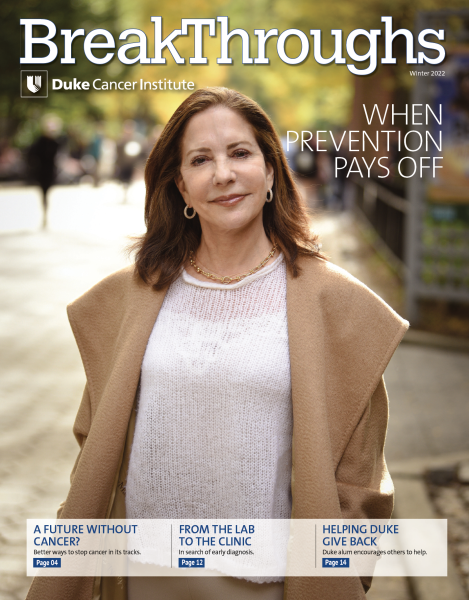Giving Opportunities
Create a Fundraising Event and Personal Fundraising Page
Whether you sing, race cars, ride motorcycles, make fabulous lemonade, cycle, or walk, you can make a difference when you unite your passion with your commitment to fund cancer research at Duke Cancer Institute. Create a personal fundraising page for your efforts, then encourage your friends and colleagues to join you in your quest to move research forward.
Attend a Charitable or Benefit Event
Duke Cancer Institute patients, caregivers, faculty, staff, and friends organize fun, inspirational events every year to increase awareness and raise funds for cancer research. Your support and participation can make a difference for all those with cancer. Here is a sampling of our annual events.
- She Dunks on Cancer (February)
- Caring House Benefit Gala January
- Angels Among Us 5K (April)
- Race for the Cure (April)
- The V Foundation Victory Ride to Cure Cancer (May)
- Survivorship Day (June)
- Gail Parkins Ovarian Cancer Run (September)
- Strike Out for Sarcoma
- Lunge Forward 5k
- Making Strides
- Tackle Cancer Tailgate
- Light the Night
- Tree of Hope













